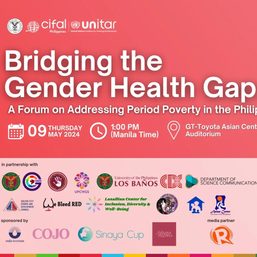SUMMARY
This is AI generated summarization, which may have errors. For context, always refer to the full article.
![[Dash of SAS] Making abortion a constitutional right](https://www.rappler.com/tachyon/2024/03/Its_true_-_Flickr_-_Josh_Parrish-1.jpg)
France just made abortion a constitutional right. Compared to the United States, where Roe v. Wade in the Supreme Court recognized and upheld the constitutional right to abortion, France has enshrined it in its constitution – the legal decree from which all other laws are founded. This means that the right to abortion in France cannot be overturned as it was in the reversal of Roe vs. Wade. France is the first country where women and pregnant people are explicitly guaranteed the right to terminate a pregnancy and make decisions about their bodies.
“There is an undeniable trend of liberalization of abortion laws across the globe,” said Jihan Jacob, Associate Director for Legal Strategies of the Center for Reproductive Rights.
In the last three decades, more than 60 countries and territories have liberalized their abortion laws. In Asia.
Despite this global trend towards liberalizing abortion laws, according to Jacob, the Philippines remains “a battleground for abortion rights.”
“Here, restrictive laws threaten women and providers with imprisonment, highlighting the urgent need for reform,” Jacob emphasized.
The threats, the restrictions, and the social taboos that impose them have fatal consequences. At least 1,000 pregnant people in the Philippines die every year from complications related to unsafe abortions.
Christine Santos was determined not to be one of them.
Christine Santos. That was the name she chose for herself at the health center. Nondescript, but believable. Forgettable and average, but common enough not to be questioned as fake or forged.
No one would know that Christine Santos needed a pregnancy test.
The two pink lines that came back confirmed that Christine Santos was pregnant. Her stomach lurched. Her knees gave way. Pregnancy was not an option. She had just lost her father. She was just about to graduate. She was just not ready. She was 19 and sure about what she had to do: terminate her pregnancy.
Christine Santos is by no means the first Filipino vulva owner to want to terminate her pregnancy. Christine Santos isn’t the first Filipino pregnant person seeking an abortion.
Over a million others induce abortions annually, the only option in a country where abortion is met with criminal sanctions, and discussing abortion is taboo.
She is, however, one of the few with the means, resources, and connections to act on her decisions about her body.
Her first stop was the pharmacy to buy pills that supposedly helped mothers who had just given birth get their menstruation back so they could lactate and breastfeed. Friends of friends had supposedly tried it. It supposedly worked. But it did not for Christine Santos, who only admonished herself for being desperate enough to believe it would.
Ultimately, she paid P10,000 for a “kit” which included Cytotec, methergin, and amoxicilin. Her partner at the time paid for the half that could not be covered by the money she made teaching and selling snacks to her classmates.
The night she took the pills started with severe pain, fever, and heavy bleeding, and ended in a week of post-abortion care. If it had not been for her compassionate OB-GYN friend who took care of her, Christine Santos might have had to endure the horrors other pregnant people through – the punishment by health workers who publicly shamed patients. Some begrudgingly treated patients, but as an act of cruelty and punishment, denied them anesthesia.
Most of the pregnant people who need post-abortion care or die from complications from unsafe abortion are poor, Catholic, married, have at least three children, and at least a high school education.
It’s been more than a decade now, and Christine Santos has never regretted her decision to have an abortion. She now helps other pregnant people get safe access to an abortion. The introductions are made through hushed referrals, requests are carefully screened, and needed medication is delivered and administered through the supervision of health workers.
One thing is no longer secret: the pregnant people who come to her call Christine Santos by her real name. – Rappler.com
Add a comment
How does this make you feel?
![[OPINION] Why we need to decriminalize abortion](https://www.rappler.com/tachyon/2020/09/need-to-decriminalize-abortion-September-26-2020.jpg?fit=449%2C449)












There are no comments yet. Add your comment to start the conversation.